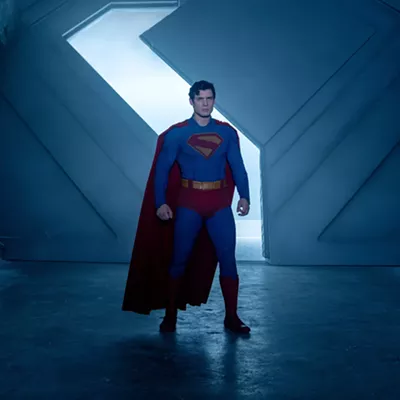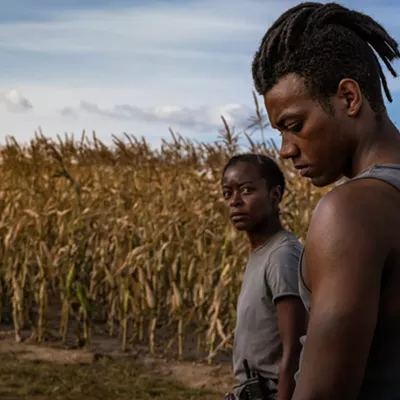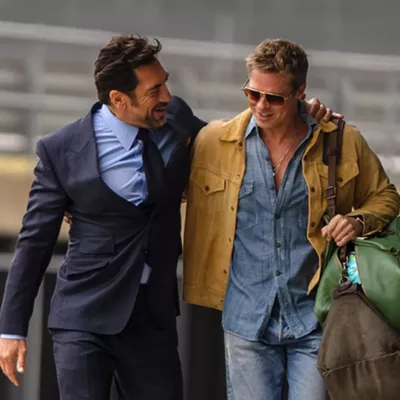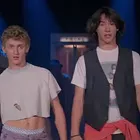Whether it’s The Way, Way Back or The To Do List, this year’s “summer movies” have been steeped in nostalgia. The Kings of Summer, Jordan Vogt-Roberts’ first feature continues this trend, inviting viewers to recall their own teenage forays into the woods when they inevitably laid eyes on a stretch of untamed land and claimed it as their own.
Of course, those filmgoers unable to draw on firsthand experience may instead turn to memories of Terence Malick’s 1973 debut Badlands or last year’s Wes Anderson offering Moonrise Kingdom. Like both those films, The Kings of Summer features teenage runaways making a life for themselves in nature. However, the rebels here lack the bad reputations of Badlands’ Kit or Kingdom’s Sam. Rather, they’re the sort of unmotivated, anonymous kids who drift through life without anyone giving them a second thought. While Joe (Nick Robinson) is confident enough to talk to his crush Kelly (Erin Moriarty) in the halls of their high school, he’s resigned to losing her to college guys with their own apartments. Meanwhile, his best friend Patrick’s (Gabriel Basso) naturally athletic frame masks a fierce introversion that leaves him most comfortable when holed up in his basement.
Given their lack of ambition, Chris Galletta’s script requires a catalyst to flush these underachievers out of hiding and spur them into action. Somewhat unexpectedly, the strongest aspect of a script focused on teenage boys seeking their independence proves to be its alternately astute and absurd depictions of parental posturing and blather.
As Joe’s curmudgeonly dad, Parks and Recreation’s Nick Offerman effortlessly finds the ideal gritted-teeth delivery for a man who defines himself by rules and routine. In scenes in which he refuses to rise to the bait of his son’s taunts, he hilariously conveys a boiling cauldron of barely suppressed fury and deep-seated frustration. Conversely, Megan Mullally and Marc Evan Jackson play Patrick’s parents as the sort of blissful squares who attempt to earn points by talking about Hancock but end up referring to Will Smith as “that New Prince.”
Alas, Vogt-Roberts’ coming-of-age film also harbors serious dramatic ambitions, as evidenced by its use of a slight variation of the time-honored “Chekhov’s gun” principle. Here, the philosophy runs: if a snakeskin is glimpsed in the first act, heavy-handed Garden of Eden allusions must flourish in the second and a serpent must rear its sinister head by the climax.
The stage upon which all of this might unfold is a haphazard homestead that the boys construct in an Ohio forest. While it defies credibility that such unskilled hands might erect a two-story structure, their refuge pales in terms of contrivance to Biaggio (Moises Arias), a machete-brandishing weirdo who gloms onto Joe and Patrick.
Despite tracks by The Orb and MGMT throbbing on the soundtrack, Vogt-Roberts aspires to a sense of timelessness. In keeping with the film’s “some things never change” mentality, it’s the arrival of a young woman — the aforementioned Kelly — that sets into motion the boys’ expulsion from paradise. Needless to say, one doesn’t necessarily turn to the Good Book when looking to get their teenage kicks. And as the denouement proudly summates what its characters have learned, we can only lament that we never once saw these boys go wild.















